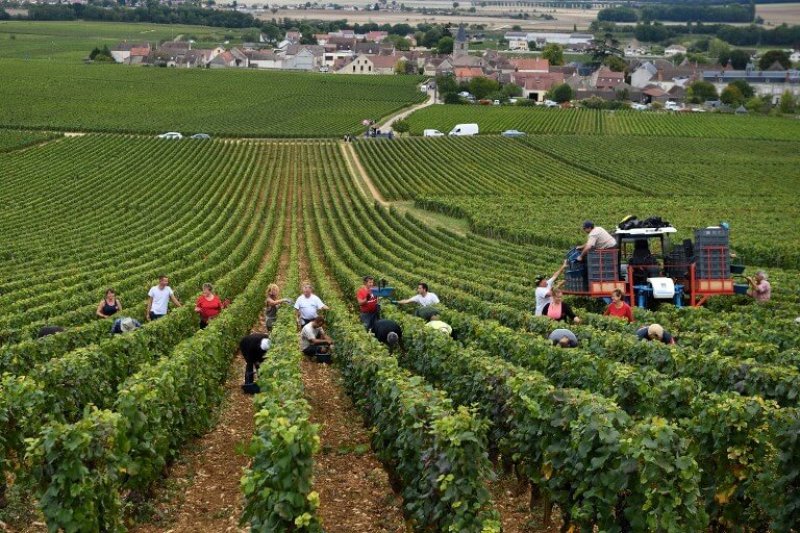The vice-president of the CIVB (Conseil interprofessionnel du vin de Bordeaux) Bernard Farges launched a bomb on October 15, announcing that there will be “deconversions from organic farming in 2019.” The reason? A very complicated 2018 for wine growers, between hail storms and late blight attacks, which followed a difficult 2017 because of freezing temperatures.
…
“Bio is no longer a sustainable solution”
“It had to be decided,” he told 20 Minutes , and in this area, there is no in-between. Either you do organic or you do not. And me, I do not believe it anymore ….” But what is the problem …. with organic? It basically boils down to one word: copper, the only organic pesticide allowed. “The vast majority of organic treatments are made from copper,” he says ….
However, copper “still poses a lot of problems, starting with stagnation in the soil,” worries Basil Tesseron, head of the Lafon-Rochet estate in Saint-Estèphe [France]. “It’s a product in the heavy metals category, so it does not evaporate, it builds up in the soil ….
…
Towards a reduction in the use of copper
Moreover, “there is a good chance that Europe will ban this product, having already decided to regulate its use more” anticipates the winemaker, who believes that “the so-called natural products are not always the best”. Pesticide of natural origin, copper is indeed subject to discussions. “Excessive concentrations of copper have adverse effects on the growth and development of most plants, microbial communities and soil fauna,” INRA noted last January , in a scientific report to “reduce use of copper for the protection of biological uses “.
The organic sector is tired of being permanently attacked
Sylvie Dulong, organic viticulturist in Saint-Emilion, and president of the Regional Federation of organic agriculture in Nouvelle-Aquitaine, deplores that her sector is attacked “permanently” and that “we systematically seek to oppose conventional winemakers; it’s not our view of things. ”
She assures that “at the doses at which it is used, copper is not a problem” and although it does not negate the residues in the soil, it considers that “it has nothing to do with the harmful consequences of chemicals. of synthesis.
Editor’s note: This article was originally published in French. This English summary was prepared with Google Translate and edited for clarity.]
Read full, original article: Bordeaux: This winemaker abandons organic farming because copper is too polluting for soils































